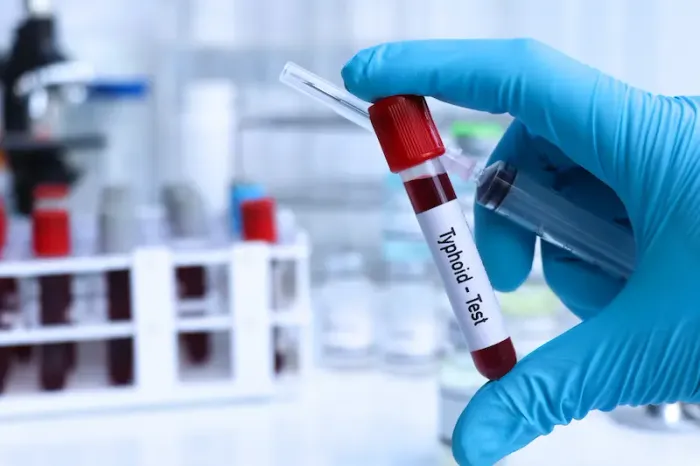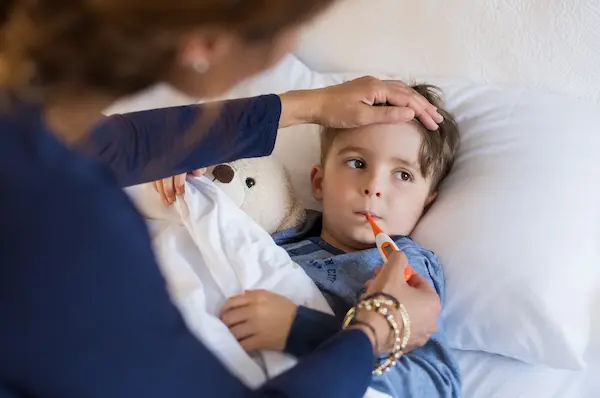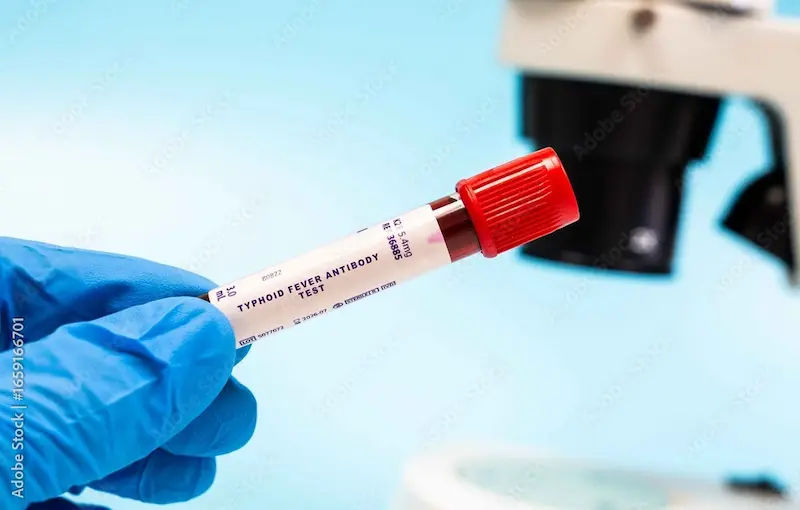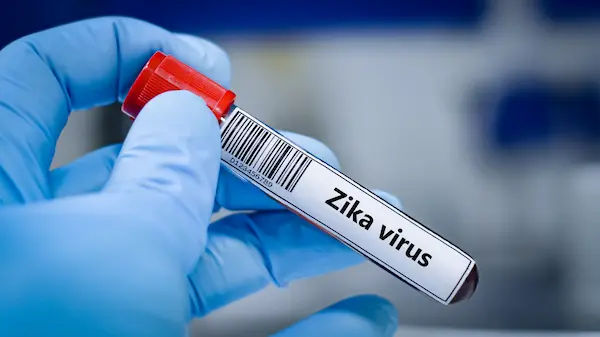Types of Typhoid and Relevant Tests
Discover the different types of typhoid fever, including their symptoms and complications. Learn about the most reliable diagnostic tests used for accurate detection and timely treatment.

Written by Dr. Vasanthasree Nair
Reviewed by Dr. Shaik Abdul Kalam MD (Physician)
Last updated on 13th Jan, 2026

Typhoid fever is a serious bacterial infection caused by Salmonella typhi. It spreads through contaminated food and water and can lead to high fever, stomach pain, and weakness if left untreated. Knowing the different types of typhoid and the tests available can help in early diagnosis and treatment.
Types of Typhoid
Typhoid fever can be classified into different types based on severity and symptoms:
1. Classic Typhoid Fever
This is the most common form, caused by Salmonella typhi. Symptoms include:
Prolonged high fever (up to 104°F or 40°C)
Headache and body aches
Weakness and fatigue
Stomach pain and loss of appetite
Diarrhoea or constipation
Rose-coloured spots on the chest (in some cases)
2. Paratyphoid Fever
Caused by Salmonella paratyphi (types A, B, or C), this is a milder form of typhoid but has similar symptoms. It is less severe but still requires medical attention.
3. Typhoid Carrier State
Some people recover from typhoid but continue to carry the bacteria in their bodies without showing symptoms. These carriers can spread the infection to others unknowingly.
How Typhoid Affects Health?
If not treated early, typhoid can lead to serious complications, such as:
Intestinal bleeding or perforation (a hole in the gut)
Severe dehydration
Brain infections (meningitis)
Heart and kidney problems
Early diagnosis and treatment can prevent these complications.
Consult Top Specialists
Tests for Typhoid Diagnosis
To confirm typhoid fever, doctors recommend different tests:
1. Blood Culture Test
What it does: Detects Salmonella typhi bacteria in the blood.
Best time to take: Within the first week of fever.
Why it’s important: Most accurate test in early stages.
2. Widal Test
What it does: Measures antibodies against typhoid bacteria.
Best time to take: After 7-10 days of fever.
Limitation: Can sometimes give false positives if you’ve had a previous infection or vaccination.
3. Stool Culture Test
What it does: Checks for bacteria in stool samples.
Best time to take: Useful in later stages or for detecting carriers.
4. Urine Culture Test
What it does: Detects bacteria in urine.
Best time to take: Can be done alongside blood tests.
5. Typhoid Test
What it does: Quick antibody detection (results in hours).
Best time to take: Useful when fast diagnosis is needed.
Get Your Health Assessed Here
Managing Typhoid: Tips for Recovery
If diagnosed with typhoid, follow these steps for a faster recovery:
1. Take Prescribed Antibiotics
Complete the full course to prevent relapse.
Do not stop medication even if symptoms improve.
2. Stay Hydrated
Drink plenty of clean water, ORS, coconut water, and soups.
Avoid caffeine and alcohol.
3. Eat Light, Nutritious Foods
Choose boiled vegetables, khichdi, bananas, and yoghurt.
Avoid spicy, oily, or raw foods.
4. Rest Well
Avoid physical strain until fully recovered.
5. Maintain Hygiene
Wash hands frequently with soap.
Drink only boiled or purified water.
Preventing Typhoid
To reduce the risk of typhoid:
Get vaccinated (oral or injectable options available).
Avoid street food and raw foods (especially in high-risk areas).
Practice good hygiene (wash hands before eating).
When to See a Doctor?
If you or a loved one has:
Persistent high fever (more than 3 days)
Severe stomach pain or vomiting
Blood in stool
Extreme weakness
Seek medical help immediately. Early treatment prevents complications.
Book a Typhoid Test with Apollo 24|7
Worried about typhoid symptoms? Get tested easily with Apollo 24|7. You can:
Book a home collection for blood or stool tests.
Consult a doctor online for guidance.
Get fast, accurate results.
If you suspect typhoid, don’t delay—early testing can save lives.
Would you like to schedule a test or speak to a doctor?
Consult Top Specialists
Consult Top Specialists

Dr. Rajib Ghose
General Physician/ Internal Medicine Specialist
25 Years • MBBS
East Midnapore
VIVEKANANDA SEBA SADAN, East Midnapore

Dr. Shubham Chauhan
General Practitioner
4 Years • MBBS
Lucknow
Apollo 24|7 Clinic - Uttar Pradesh, Lucknow

Dr. Santanu Mandal
General Physician/ Internal Medicine Specialist
17 Years • MD (Physician), DNB (General Medicine)
Kolkata
MCR SUPER SPECIALITY POLY CLINIC & PATHOLOGY, Kolkata
(25+ Patients)

Dr. Shamanth Y B
General Physician/ Internal Medicine Specialist
5 Years • MBBS
Bengaluru
Apollo Medical Center, Marathahalli, Bengaluru
(25+ Patients)

Dr. Arthi S
Family Physician
3 Years • MBBS
Bengaluru
PRESTIGE SHANTHINIKETAN - SOCIETY CLINIC, Bengaluru




